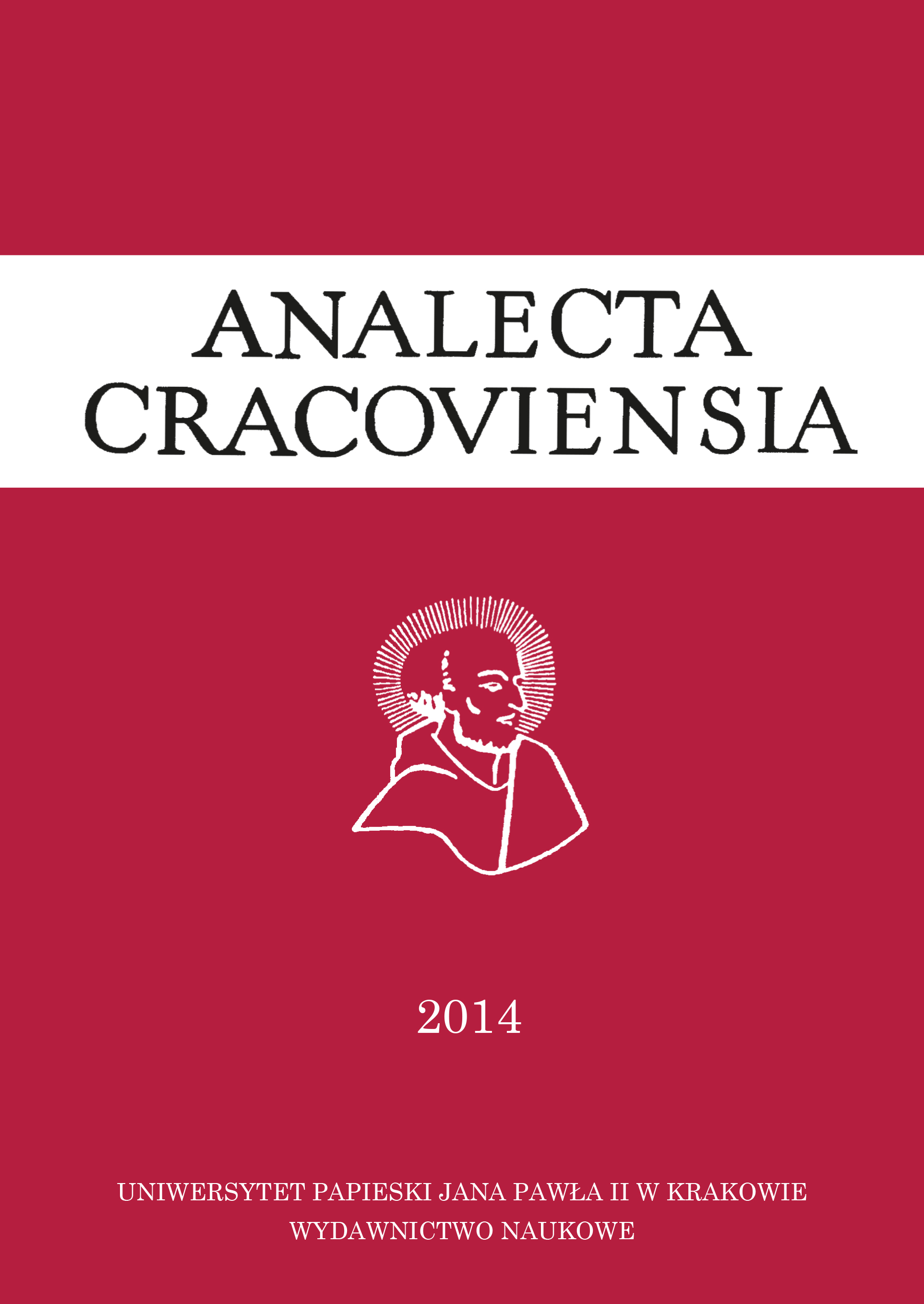Hope in Jesus Christ
DOI:
https://doi.org/10.15633/acr.955Keywords:
hope, despair, confidence, eternity, creation, cross, prayerAbstract
The process of secularization, which marks its impact on today's religion and culture, exerts its influence on Christian hope. For this reason in a new form appear two key sins against hope, despair and brash confidence. Because of the sins the man gets lost in his freedom and the door towards future gets closed as well. As in the days of the pre-Christian, the world without hope becomes sad and cold spiritually. In the existing situation arises the question how I do renew my belief in value of hope and how to show it in face of difficulties disturbing its moments of being experienced. The article emphasizes the fact that a martyr is a model of hope for mankind and reminds of three things important in proclamation of hope: the near eternity, positive dimension of creation and the prospect of the cross. And the spiritual culmination of hope is prayer.
References
Grelot P., Świat, który ma nadejść, tłum. L. Rutowska, Warszawa 1979.
Greshake G., Życie silniejsze niż śmierć. O nadziei chrześcijańskiej, tłum. J. Kubaszczyk, Poznań 2010.
Moltmann J., Theologie der Hoffnung. Untersuchungen zur Begründung und zu den Konsequenzen einer christlichen Eschatologie, Gütersloh 1997.
Moysa S., „Teraz zaś trwają te trzy”, Warszawa 1986.
Pieper J., Nadzieja a historia. Pięć wykładów salzburskich, tłum. P. Waszczenko, Warszawa 1981.
Rahner K., Zur Theologie der Hoffnung, [w:] tegoż, Schriften zur Theologie, Bd. 8, Einsiedeln 1967, s. 561–579.
Ratzinger J., Wiara i przyszłość, tłum. P. Waszczenko, Warszawa 1975.
Tischner J., Świat ludzkiej nadziei, Kraków 2005.
Vogüé A. de, Pragnąć życia wiecznego. Nadzieja wczoraj i dziś, tłum. A. Małecka-Petit, Kraków 2005.
Downloads
Published
Issue
Section
License
Copyright (c) 2015 Janusz Królikowski

This work is licensed under a Creative Commons Attribution-NonCommercial-NoDerivatives 3.0 Unported License.
Authors who publish with this journal agree to the following terms:
- Authors retain the copyright and full publishing rights without restrictions, and grant the journal right of first publication with the work simultaneously licensed under a Creative Commons Attribution 4.0 International License that allows others to share the work with an acknowledgement of the work's authorship and initial publication in this journal.
- Authors are able to enter into separate, additional contractual arrangements for the non-exclusive distribution of the journal's published version of the work (e.g., post it to an institutional repository or publish it in a book), with an acknowledgement of its initial publication in this journal.
- Authors are permitted and encouraged to post their work online (e.g., in institutional repositories or on their website) prior to and during the submission process, as it can lead to productive exchanges, as well as earlier and greater citation of published work (See The Effect of Open Access).

